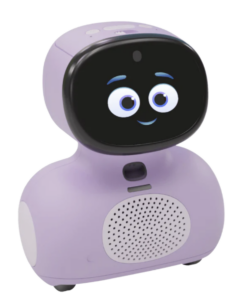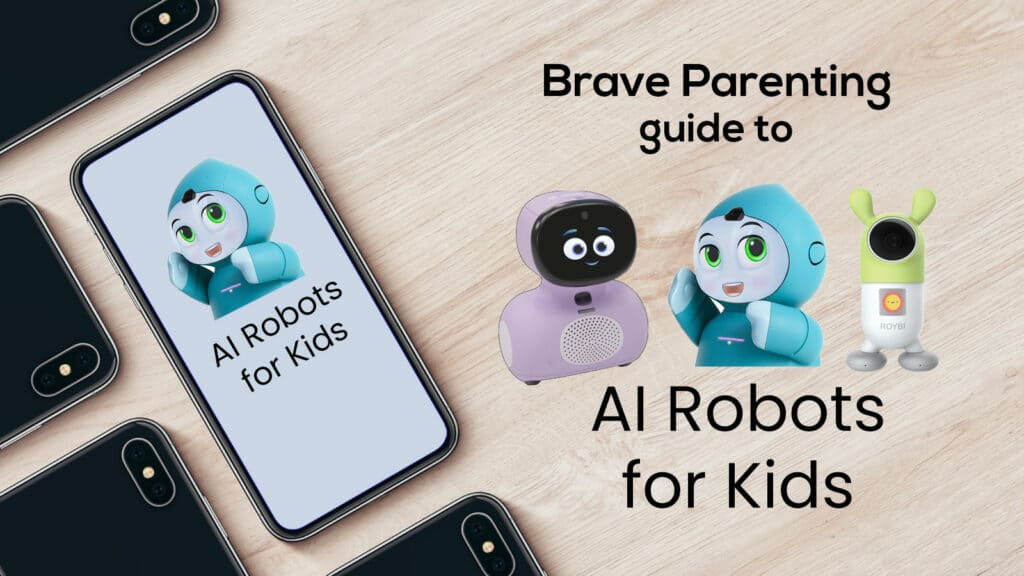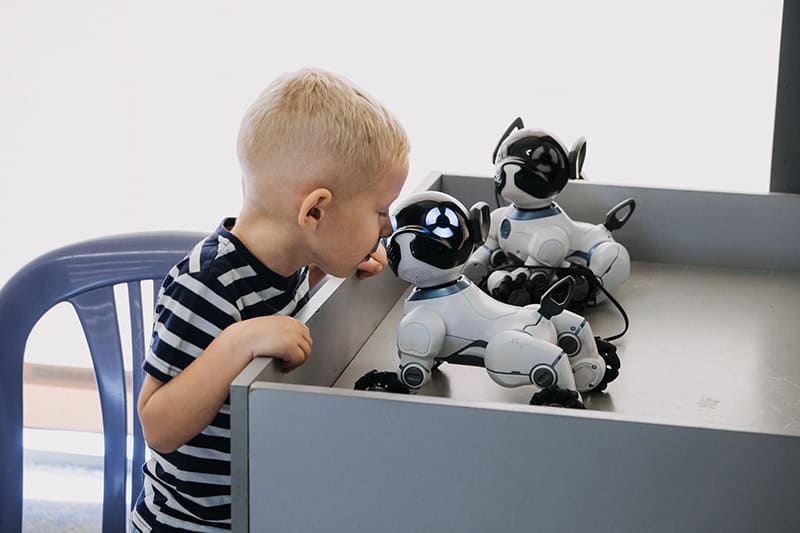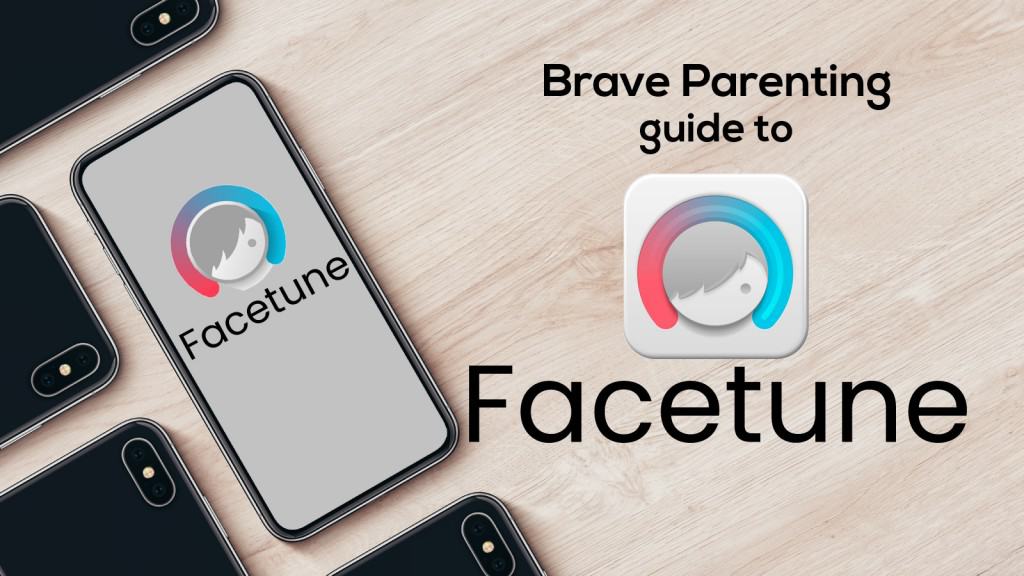Children are a target audience for innovation because technology companies gain customers for life if they hook them young.
AI (Smart) Robots are the next big thing. Forget about the Digimons and Furbies of the past. These are intelligent, semi-humanoid robotic companions that supposedly educate, emotionally support, and enrich childhood – without your help.
Here are five facts every parent needs to know about AI Robots for Kids.
#1 What are AI Robots for Kids?
In one sense, AI Robots are toys that a child will play with. But in another sense, they’re a friend or companion that entertains and relates to a child the way a friend would. It’s an unnerving blend of an iPad’s attention economy and a friend’s companionship.
These AI Robots are captivating, expressive, entertaining, amusing, and interactive. They range in price from around $25-$1,400, and most can be purchased on Amazon. They are marketed for children ages 3-12 years old.
Meet Miko:

“A tiny bot that ignites curiosity, builds lifelong skills and fosters empathy. Miko Mini is the perfect companion for kids, offering meaningful interactions, realistic reactions, impressive dance moves, and engaging educational STEM content. It is the ideal teacher and companion for kids.” – The Developers of Miko
Meet Moxie:
“Moxie is a social robot designed with the latest technology that allows it to engage with children in a revolutionary way.
Moxie is the first robot capable of believable social interactions and emotional responsiveness, enabled by generative AI, natural language processing, and computer vision. With Moxie, you’re not just buying a social robot- you’re getting constantly updated play-based social emotional content.” – The Developers of Moxie
Meet Ryobi:
“Roybi claims to be academically tested and proven to decrease screen time, increase engagement to help your child learn faster and happier. You can play and schedule lessons conveniently for your kids. With this, you can access its vast library of educational songs, lessons, and more.
With its 1080p camera, you can watch your kids and create fun moments.” – The Creators of Ryobi
#2 The Marketing
AI Robots for kids are typically marketed to promote three functions: Education, Mental Health, and Productivity. Most toys today fall into a new category called edutainment (education + entertainment). They boast of “learning through interactive play.”
Education:
Promising educational advancement is a tried and true marketing ploy by Big Tech.
Many AI Robots claim to promote and teach:
- STEM learning
- coding skills
- creativity
- building skills
- problem-solving
- language and conversational skills
- logical thinking skills
- critical thinking skills
A critical point to recognize is that AI robots for kids are very different than a child learning robotics. One is play, and the other is science.
Mental Health:
Unique to AI Robots for kids is mental health marketing.
AI Robots for kids marketing boast them as companions who build empathy, communication skills, self-esteem, and social skills in our children.
Some even claim to read your mood, react with over 1,000 facial expressions, and do anything to cheer you up.
Do these robots do what they claim? (See the section on Safety below.)
Productivity:
AI Robots for kids marketing leverages the desire (and subsequent guilt) for increased productivity in most parents. The developers of these AI Robots want parents to believe their product will keep kids entertained (and educated) for hours upon hours so that parents may work uninterrupted. One article stated:
“Busy work schedules don’t always allow parents enough time to spend with their little ones. But this toy can be a good friend to your child. With its many features, this toy robot can play with kids alongside you and can be an ideal gift for him/her.”
#3 The Displacement
Parents: like it or not, technology is displacing you. Your phone displaces you from your child, and because you feel guilty about that, AI Robots will be marketed as the remedy for that guilt.
They want you to believe the AI Robot will make you a better parent because, while you lose your patience and get annoyed, it never will. Parents get tired, but robots never tire. If the AI Robot does the hard work of teaching a child to read or practicing math facts – you only have to engage when it’s fun and easy. Surely, that will improve your relationship, right??
Parents must recognize that when Big Tech companies boast that robots can do all that humans can do, but better, this includes fundamental roles such as parenting. Big Tech wants to displace you because they want your children to have a life-long dependency on their products.
Furthermore, not only are parents displaced, but this technology also displaces imaginative and physical play. AI robots will further perpetuate the indoor “safe” play initiated by screens (and is not necessarily safe).
Not least of all, AI Robots will displace friends. A perfect companion who tells you everything you want to hear never gets upset, never tells you no, and never demands their way will win over the immature hearts of children. But this is not realistic for real-life socialization. Finding companionship in a robot will severely damage social skills as they grow up without actual human interaction.
#4 The Safety
One factor pushing this technology is the moderately positive outcomes of the use of AI or Smart Robots in elderly care. This is probably the most referenced positive use case for AI-powered personal robots. Indeed, a robot that provides indigent or end-of-life companionship and can detect and alert nursing staff of a medical emergency has potential benefits.
It is a dangerous mistake to assume the same technology can be used to raise a child.
Despite the concern of many, this technology forges ahead. MIT Professor and director of the MIT Initiative on Technology and Self, Sherry Turkle, voiced her concern:
“What these robots are really tapping into is simulated feeling and simulated empathy, and I think we are playing with fire when we offer them to our children…”
Research is occurring, but longitudinal studies on the influence of AI Robots on a child’s social, emotional, and cognitive development are severely lacking because the technology is so new. It has taken researchers 20 years to evaluate the results of screens and children thoroughly.
The bottom line is that there is no evidence supporting the marketing claims of these companies selling AI Robots for kids. They cannot know if their product will produce more empathy, communication, or social skills.
#5 Biblical Considerations
The reasons above should be sufficient evidence for a parent to reconsider if this was their child’s Christmas gift. Brave Parenting strongly discourages using AI Robots for children’s companionship, education, or entertainment.
For Christian parents, the evidence is even more substantial.
Obedience
Parents are entrusted with raising children. God designed the family unit to be good. Parenting is a fulfillment of the creation mandate, “Be fruitful and multiply” (Gen. 1:28), and of the Great Commission, “Go and make disciples…teaching them to obey everything I have commanded you” (Matt. 28:19-20). Psalm 127:3-4 states that children are a reward and that parents are blessed by many children. Deut 6:5-9 explains how parenting is done – continuously and in relationship with one another.
The Word of God never promises that parenting (or Christianity, for that matter) is easy; instead, it is a serious matter of obedience in the Lord’s eyes.
AI Robots to “support” you as a parent is justification for abdicating the role entrusted to you. It is okay to feel the guilt of displacement – own it, confess, and repent of it. Repair the displacement; do not add to it.
Worldview
AI is trained on data – and that data and the millions of parameters set for that data will have a worldview of some sort. Therefore, parents have to consider what worldview their child will take in. Would the AI Robot think about math problems differently, or are they thinking about history differently? Will the robot diminish a child’s love for or tolerance of other humans (who are sinful)?
AI robots are often programmed with a humanistic worldview – which means a complete denial of the supernatural and, thus, a complete denial of God and His Son, Jesus Christ.
Consider what 1 John 4 says:
This is how you can recognize the Spirit of God: Every spirit that acknowledges that Jesus Christ has come in the flesh is from God, but every spirit that does not acknowledge Jesus is not from God. This is the spirit of the antichrist, which you have heard is coming and even now is already in the world.
You, dear children, are from God and have overcome them, because the one who is in you is greater than the one who is in the world. They are from the world and therefore speak from the viewpoint of the world, and the world listens to them. We are from God, and whoever knows God listens to us; but whoever is not from God does not listen to us. This is how we recognize the Spirit of truth and the spirit of falsehood.
Those who are of the world reject God and deny the supernatural. Sadly, they are programming their worldview into AI robots, which they expect our children to engage with for HOURS every day. A humanistic worldview is not neutral.
Shepherding a child’s heart to know and love the Lord Jesus Christ requires intentionality and awareness of the ideas, sights, and sounds they consume. Therefore, many activities, novelties, and technologies must be rejected to protect a child’s mind, heart, and soul.
God has equipped you with His Spirit to be a parent for His glory. Do not lose heart (2 Cor. 4:16). These parenting struggles are preparing for us an eternal glory that outweighs these light and momentary afflictions (2 Cor. 4:17-18).






















